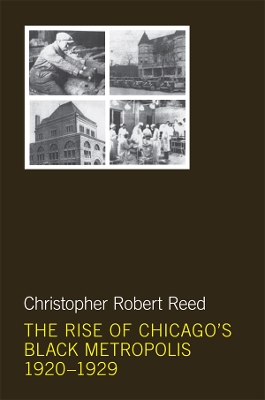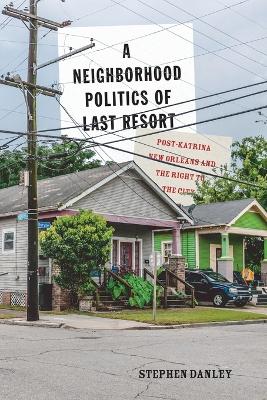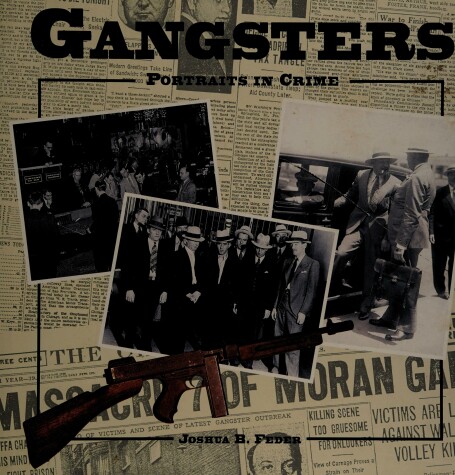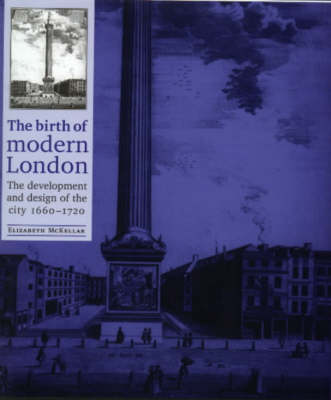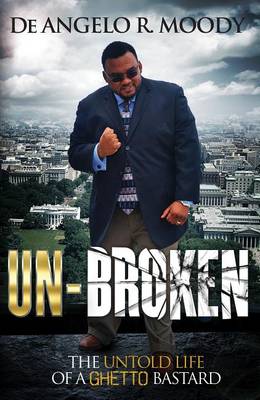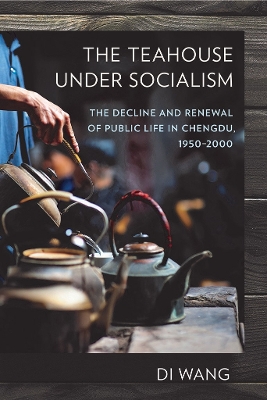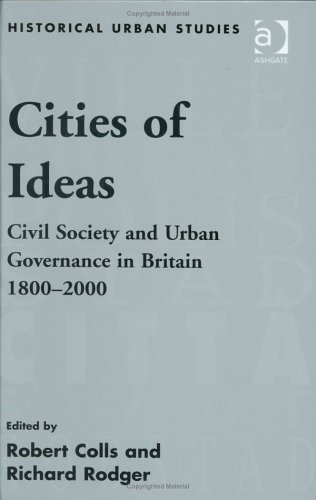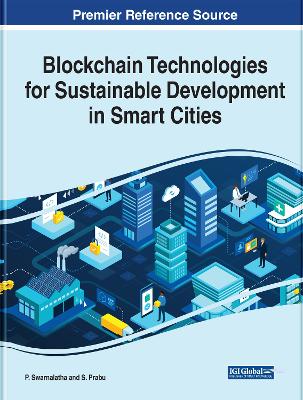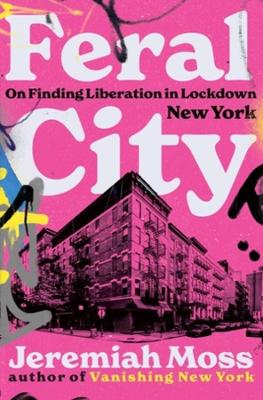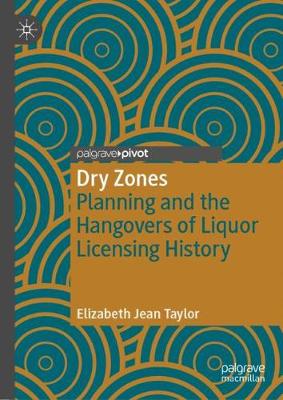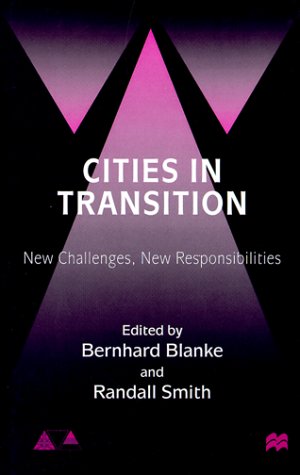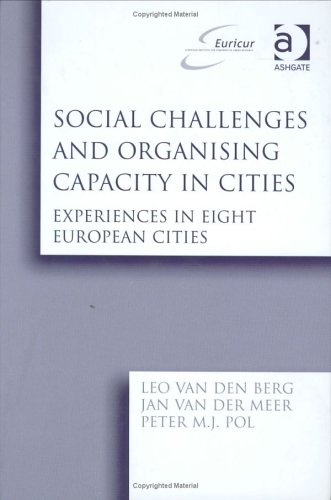The Rise of Chicago's Black Metropolis, 1920-1929 (New Black Studies)
by Christopher Robert Reed
During the Roaring '20s, African Americans rapidly transformed their Chicago into a "black metropolis." In this book, Christopher Robert Reed describes the rise of African Americans in Chicago's political economy, bringing to life the fleeting vibrancy of this dynamic period of racial consciousness and solidarity. Reed shows how African Americans rapidly transformed Chicago and achieved political and economic recognition by building on the massive population growth after the Great Migration from...
A Neighborhood Politics of Last Resort (McGill-Queen's Studies in Urban Governance)
by Stephen Danley
The steep rise in neighborhood associations in post-Katrina New Orleans is commonly presented in starkly positive or negative terms - either romanticized narratives of community influence or dismissals of false consciousness and powerlessness to elite interests. In A Neighborhood Politics of Last Resort Stephen Danley offers a messier and ultimately more complete picture of these groups as simultaneously crucial but tenuous social actors. Through a comparative case study based on extensive fie...
The familiar image of Los Angeles as a metropolis built for the automobile is crumbling. Traffic, air pollution, and sprawl motivated citizens to support urban rail as an alternative to driving, and the city has started to reinvent itself by developing compact neighborhoods adjacent to transit. As a result of pressure from local leaders, particularly with the election of Tom Bradley as mayor in 1973, the Los Angeles Metro Rail gradually took shape in the consummate car city. Railtown presents th...
The Birth of Modern London (Studies in Design and Material Culture)
by Professor Elizabeth McKellar
The period 1660-1720 saw the foundation of modern London. The city was transformed post-Fire from a tight warren of medieval timber-framed buildings into a vastly expanded, regularized landscape of brick houses laid out in squares and spacious streets. This work examines the building boom and the speculative developers who created that landscape. It offers fresh information on their working practices, the role of craftsmen and the design thinking which led to the creation of a new prototype for...
Schools and the Urban Renaissance
BLURB TO COME This book was published as a special issue in the Journal of Education Policy.
To understand a city fully, writes Di Wang, we must observe its most basic units of social life. In The Teahouse under Socialism, Wang does just that, arguing that the teahouses of Chengdu, the capital of Sichuan Province, are some of the most important public spaces—perfect sites for examining the social and economic activities of everyday Chinese. Wang looks at the transformation of these teahouses from private businesses to collective ownership and how state policy and the proprietors’ respo...
Cities of Ideas (Historical Urban Studies)
Addressed the cahnging nature of individualism and public service in the 19th and 20th centuries, and consists of a collection of essays authored by senior figures in economic, social, cultral and educational history.
About the practices and politics of place and identity formation - the slippery ways in which who we are becomes wrapped up with where we are - this book exposes the relations of place to power. It links everyday aspects of place experience to the social theories of Deleuze and Bourdieu in a very readable manner. This is a book that takes the social critique of built form another step through detailed fieldwork and analysis in particular case studies. Through a broad range of case studies from n...
Blockchain Technologies for Sustainable Development in Smart Cities
Blockchain technology has great potential to radically change our socio-economic systems by guaranteeing secure transactions between untrusted entities, reducing costs, and simplifying many processes. However, employing blockchain techniques in sustainable applications development for smart cities still has some technical challenges and limitations. Blockchain Technologies for Sustainable Development in Smart Cities investigates blockchain-enabled technology for smart city developments and big d...
Urban Environmental Policy Analysis
by Kenneth C Campbell and Elizabeth A Corley
This timely book provides a wealth of useful information for following through on today's renewed concern for sustainability and environmentalism. It's designed to help city managers, policy analysts, and government administrators think comprehensively and communicate effectively about environmental policy issues.The authors illustrate a system-based framework model of the city that provides a holistic view of environmental media (land, air, and water) while helping decision-makers to understand...
Author, social critic and “New York City’s career elegist” (The New York Times), Jeremiah Moss felt alienated in a town that had become suburbanised and sanitised. Then lockdown launched an unprecedented urban experiment: What happens when an entire social class abandons the city? In the streets made vibrant by New Yorkers left behind, Moss found a sense of freedom he never thought possible. Participating in a historic explosion of protest, resistance and spontaneity. From queer BLM marches to e...
Neighbourhood Images in Nottingham (Area Regeneration)
by Richard Silburn, Dan Lucas, Robert Page, and Lynn Hanna
The story of how Toronto became a music mecca. From Yonge Street to Yorkville to Queen West to College, the neighbourhoods that housed Toronto's music scenes. Featuring Syrinx, Rough Trade, Martha and the Muffins, Fifth Column, Shadowy Men on a Shadowy Planet, Rheostatics, Ghetto Concept, LAL, Broken Social Scene, and more! "Jonny Dovercourt, a tireless force in Toronto's music scene, offers the widest-ranging view out there on how an Anglo-Saxon backwater terrified of people going to bars on Su...
The Urban Environment Op
This book tells the story of local-level controls on liquor licensing ('local option') that emerged during the anti-alcohol temperance movement of the late 19th and early 20th centuries. It offers a new perspective on these often-overlooked smaller prohibitions, arguing local option not only reshaped the hotel industry but has legacies for, and parallels with, questions facing cities and planners today. These range from idiosyncratic dry areas; to intrinsic ideas of residential amenity and neigh...
This volume explores a range of problems faced by cities in Germany and England and reflects on constructive strategies for enhancing the quality of life for the citizens of 21st-century urban environments. The chapters of the book are based on papers given at a symposium organized by the Universities of Bristol and Hannover in 1997 to celebrate the 50th anniversary of twinning between the cities of Hannover and Bristol.
Where do neighborhoods come from and why do certain resources and effects--such as social capital and collective efficacy--bundle together in some neighborhoods and not in others? From the Ground Up argues that neighborhood communities emerge from neighbor networks, and shows that these social relations are unique because of particular geographic qualities. Highlighting the linked importance of geography and children to the emergence of neighborhood communities, Rick Grannis models how neighbori...
Globalization and the transition to a knowledge and information society have considerably strengthened the position of cities as nerve centres of the "new economy". However, these trends have also sharpened competition between cities. The intense competition for mobile investments has meant that not only local authorities, but also national and regional governments, and even the European Commission, have had to focus their attention on urban policy and development. Yet despite the resulting econ...
